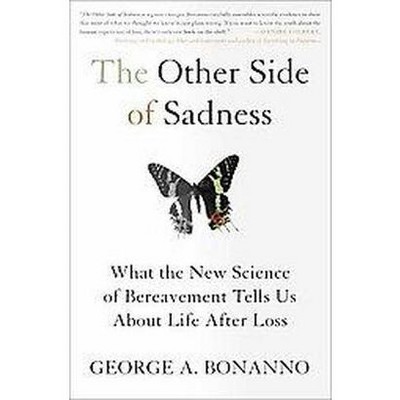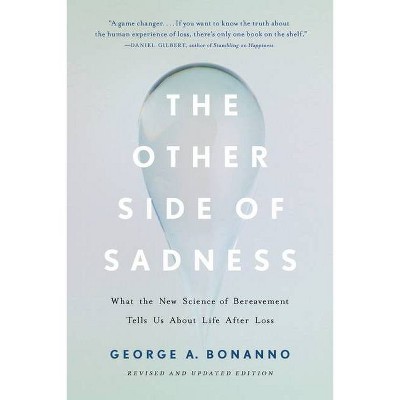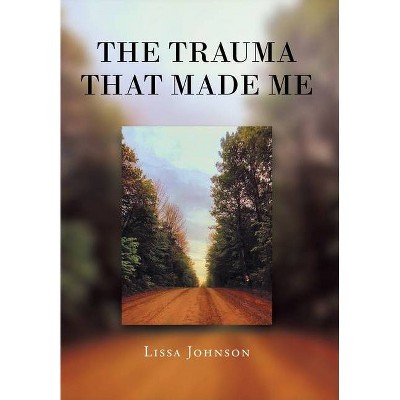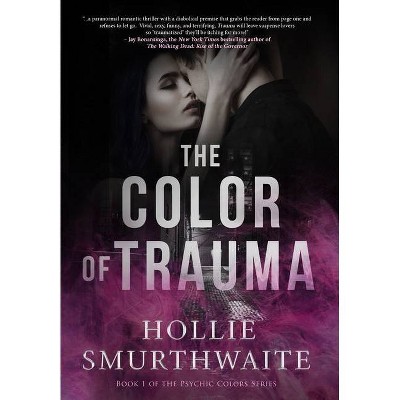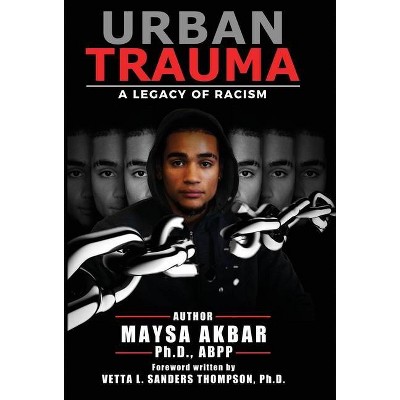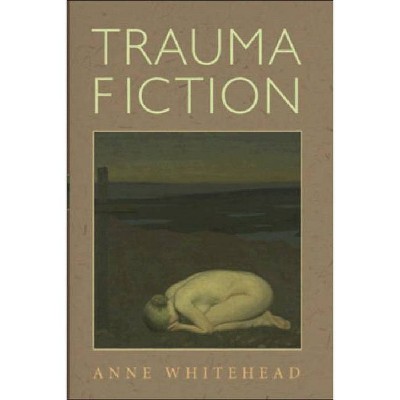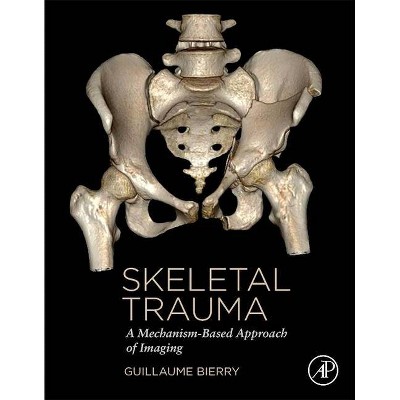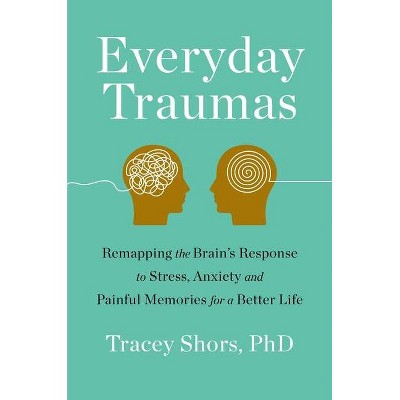The End of Trauma - by George A Bonanno (Hardcover)
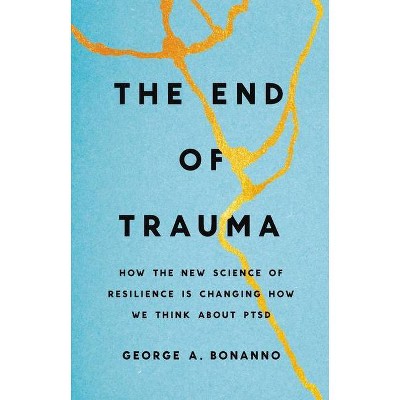
Similar Products
Products of same category from the store
AllProduct info
<p/><br></br><p><b> About the Book </b></p></br></br>"After 9/11, thousands of mental health professionals from across the country assembled in Manhattan to help handle the almost certain avalanche of traumatized New Yorkers. Curiously, it never came. While plenty of people did seek mental health counseling after 9/11, the numbers were nowhere near expected. As renowned psychologist George Bonanno argues, psychiatrists failed to predict the response to 9/11 because our model of trauma is wrong. Psychiatrists only study clinically traumatized people, and over time this skewed sample has led us to believe that trauma was the natural response to stress. But what about all the people who never come in for help? Bonanno has spent his career studying how people respond to potentially traumatic events, whether or not they show symptoms of PTSD. In TK, he lays out a bold new model of the origins and trauma, and how we can more effectively treat it. Bonanno's research has shown that the natural response to stressful situations is not trauma but resilience. Most people are, by default, able to cope without suffering long-term consequences. This is important because assuming that people are traumatized when they aren't can actually risk traumatizing them. TK explains what makes us resilient, why people sometimes aren't, and what really helps us work through trauma. of the book draws on Bonanno's pioneering studies on trauma in war veterans, car crash victims, assault and abuse survivors, and even the victims of 9/11. His most crucial finding is that resilience does not come from one essential coping strategy, as other books argue. Resilience is actually a process in which we actively explore, assess, and adapt the strategies that allow us to engage with a situation. Trauma happens when our natural systems of resilience falter, and Bonanno develops a method for restoring resilience called the flexibility sequence, a series of strategies designed to help us find new coping strategies when we find ourselves at a loss. Bonanno's first book, The Other Side of Sadness, showed that the oft-touted notion that there are "five stages" of bereavement ignored how real people grieve. The book spoke not only to his fellow psychologists, but to thousands of people who needed to better understand their own experiences of loss. In the same tradition, TK reclaims the study of trauma from outdated theorizing and puts it in the context of people's real experiences, because we can only understand how to heal from trauma once we understand how humans actually deal with it"--<p/><br></br><p><b> Book Synopsis </b></p></br></br><p><b>A top expert on human trauma argues that we vastly overestimate how common PTSD is and fail to recognize how resilient people really are</b> <p/>After 9/11, mental health professionals flocked to New York to handle what everyone assumed would be a flood of trauma cases. Oddly, the flood never came. <p/>In <i>The End of Trauma</i>, pioneering psychologist George A. Bonanno argues that we failed to predict the psychological response to 9/11 because most of what we understand about trauma is wrong. For starters, it's not nearly as common as we think. In fact, people are overwhelmingly resilient to adversity. What we often interpret as PTSD are signs of a natural process of learning how to deal with a specific situation. We can cope far more effectively if we understand how this process works. Drawing on four decades of research, Bonanno explains what makes us resilient, why we sometimes aren't, and how we can better handle traumatic stress. <p/>Hopeful and humane, <i> The End of Trauma</i> overturns everything we thought we knew about how people respond to hardship.</p><p/><br></br><p><b> Review Quotes </b></p></br></br><br><i>The End of Trauma </i>by George Bonanno is one of the most interesting, well-written, and clinically relevant books that I have read in recent years. It turns out that humans are far better at coping with traumatic events than we had thought. The book really soars when he tells the story of individuals who transcended terrible experiences and endured. A truly great book for everyone.--<i><b>Robert L.Leahy, Director, American Institute for Cognitive Therapy</b></i><br><br><p>Bonanno is a master storyteller. <i>The End of Trauma</i> turns common sense on its head with impeccable science and a narrative like a suspense novel. If you or your loved ones have ever faced great adversity, this book is for you.</p>--<i><b>Lisa Feldman Barrett, Distinguished Professor of Psychology and author of How Emotions Are Made</b></i><br><br><p>George Bonanno is a rare scientist-researcher who knows how to systematically and deeply explore whatever he's attempting to understand, while also being able to translate it into clear, easy to follow guidance. <i>The End of Trauma</i> was four decades in the making, and it was worth the wait.</p>--<i><b>Patricia Nelson, National Center for PTSD</b></i><br><br>"A fresh perspective... Bonanno adeptly succeeds in capturing the profound lived experience of trauma and in balancing these accounts with cutting edge findings from psychology and neuroscience."--<i><b>Science</b></i><br><br>"An instant classic in the science of PTSD. With keen insight, abundant sensitivity, and persuasive prose, Bonanno helps us understand why resilience isn't so much a trait as it is a process -- one that requires flexibility and wisdom to manage effectively. By providing much of that wisdom, he helps open the door to resilience for everyone who has faced adversity and trauma." <br> --<i><b>David DeSteno, Professor of Psychology, Northeastern University</b></i><br><br>"Bonanno proposes a new way to look at trauma in this hopeful examination... he masterfully conveys his extensive research on 9/11 survivors, and on people who suffered severe spinal cord injuries yet who didn't experience long-term traumatic effects... Bold and accessible, this offers much to consider."--<i><b>Publishers Weekly</b></i><br><br>A remarkable book. <i>The End of Trauma </i>deftly describes what George Bonanno and others have discovered about how people experience devastating experiences yet emerge psychologically unscathed. With the narrative drive of a gifted novelist, Bonanno tells the dramatic, inspiring stories of survivors of accidents, war, and terrorism who triumphed over trauma, and shows how the pragmatic, flexible application of certain emotion regulation skills can foster resilience. <br> --<i><b>Richard J. McNally, Professor of Psychology and Director of Clinical Training, Harvard University</b></i><br><br>Everything you know about trauma -- about how human beings deal with the worst things that can possibly happen to them - is probably wrong. One book can fix that, and this is the one. The world's expert on human resilience has written a powerful, important, and fascinating book that explains how ordinary people take arms against a sea of troubles, and by opposing, end them.--<i><b>Daniel Gilbert, bestselling author of Stumbling on Happiness</b></i><br><br>George Bonanno has done groundbreaking research on the psychology of resilience. In this book, he reveals how people can break free from the aftershocks of traumatic events. I can't think of a better time for his insights.--<i><b>Adam Grant, #1 New York Times bestselling author of Think Again</b></i><br><br>George Bonanno has hit a home run. With a blend of page-turning stories, illuminating examples, and cutting-edge science, <i>The End of Trauma </i>is guaranteed to change your mind about the sources and prevalence of trauma. Reading this gorgeously-written book will make you appreciate your own mind's flexibility and how to capitalize on it to become a more resilient person.--<i><b>Sonja Lyubomirsky, Distinguished Professor of Psychology at the University of California, Riverside and author of The How of Happiness</b></i><br><br>George Bonanno is a leading thinker about trauma and resilience. And in his new book, <i>The End of Trauma</i>, he argues that much of what you think you know about trauma is wrong. Bonanno uses moving accounts of patients, and his extensive knowledge of this field, to make his case, offering an insight-filled new perspective on trauma, treatment, and resilience.--<i><b>Joseph LeDoux, author of The Deep History of Ourselves</b></i><br><br>In <i>The End of Trauma</i>, George Bonanno charts a brilliant and illuminating path forward in our understanding of trauma and how we find wisdom in resilience. This book will transform our understanding of the hardest times of life.--<i><b>Dacher Keltner, Professor of Psychology, UC Berkeley</b></i><br><br>"Necessary and important...Bonanno's research is brilliantly presented through the personal stories of his interview subjects and comes alive through the lenses of personal experience, as people explain their feelings of stress and worry, hope, and optimism in their own words." --<i><b>Library Journal</b></i><br><p/><br></br><p><b> About the Author </b></p></br></br>George A. Bonanno is professor of clinical psychology and director of the Loss, Trauma, and Emotion Lab at Teachers College, Columbia University. Bonanno pioneered the idea of resilience in the study of loss and trauma, and developed a theory of grief that is now the standard paradigm among clinical psychologists. His research has been covered by the New York Times, the <i>Wall Street Journal, The New Yorker, Scientific American, The Atlantic, The Los Angeles Times, Rolling Stone</i>, NPR, CBS, ABC, CNN, and in many places elsewhere. The author of <i>The Other Side of Sadness</i>, he lives with his family in New York.
Price History
Cheapest price in the interval: 21.99 on October 22, 2021
Most expensive price in the interval: 21.99 on November 8, 2021
Price Archive shows prices from various stores, lets you see history and find the cheapest. There is no actual sale on the website. For all support, inquiry and suggestion messagescommunication@pricearchive.us
